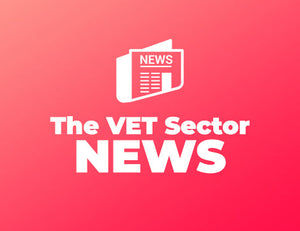
The Importance of Contextualising Assessment and Learning Resources in RTOs
SUKH SANDHURegistered Training Organisations (RTOs) often consider purchasing assessment and learning resources to save time and effort in developing their own materials. However, it is crucial to understand that simply buying and using these resources without contextualisation may not be compliant with regulatory bodies such as Australian Skills Quality Authority (ASQA) regulatory guidelines. In this article, we will discuss the importance of contextualising assessment and learning resources, the risks of using non-compliant materials, and the alternatives available to RTOs.
Understanding the Need for Contextualisation
While there are numerous providers offering compliant learning resources at competitive prices, it is essential to note that most of these resources require contextualisation to meet the specific requirements of the relevant training package. Contextualisation is the process of adapting assessment and learning materials to suit the unique needs of learners, industries, and specific workplace environments. This ensures that the resources are relevant, engaging, and tailored to the intended cohort.
Risks of Using Non-Compliant Resources
Using non-compliant assessment and learning resources poses significant risks to RTOs, including:
- Non-compliance with regulatory guidelines: Failing to contextualise materials may result in non-compliance with regulatory guidelines, leading to penalties, sanctions, or even cancellation of RTO registration.
- Inadequate learner outcomes: Non-contextualised resources may not effectively address the specific learning needs of students, resulting in poor learner outcomes and reduced satisfaction.
- Damage to RTO reputation: Relying on non-compliant resources can harm the RTO's reputation, affecting student enrolments, industry partnerships, and future growth opportunities.
The Contextualisation Process
To ensure compliance and effectiveness, RTOs should engage in the following contextualisation steps:
- Analyse the training package requirements: Review the relevant training package to understand the specific competency standards, performance criteria, and assessment requirements.
- Consult with industry experts: Engage in industry consultation to gain insights into the specific needs, expectations, and challenges of the intended cohort and their workplace environments.
- Adapt resources to suit learner needs: Modify assessment and learning materials to reflect the unique needs of learners, industries, and specific workplace contexts.
- Validate and review: Continuously validate and review the contextualised resources to ensure their ongoing effectiveness and compliance with regulatory requirements.
Alternatives to Purchasing Off-the-Shelf Resources
While purchasing off-the-shelf resources can be a convenient starting point, RTOs should also consider the following alternatives:
- Develop professional learning resources in-house: Invest in the development of customised assessment and learning materials, tailored to the specific needs of learners and industries.
- Collaborate with an RTO advisor: Work with an experienced RTO advisor to develop compliant and contextualised resources, benefiting from their expertise and industry knowledge.
- Seek partnerships with industry experts: Establish partnerships with industry experts to co-create relevant and engaging resources that reflect current industry practices and trends.
Adhering to Regulatory Guidelines and Licensing Agreements
When using third-party resources, RTOs must adhere to regulatory guidelines on the use of generic training and assessment strategies, as well as the specific licensing agreements and guidelines provided by resource providers. This includes understanding the responsibilities and limitations involved in adapting materials to ensure compliance with regulatory requirements.
In conclusion, while purchasing assessment and learning resources may seem like a time-saving option, it can lead to significant issues down the track if they're not adapted to meet the specific needs of your learners.
RECENT POSTS





